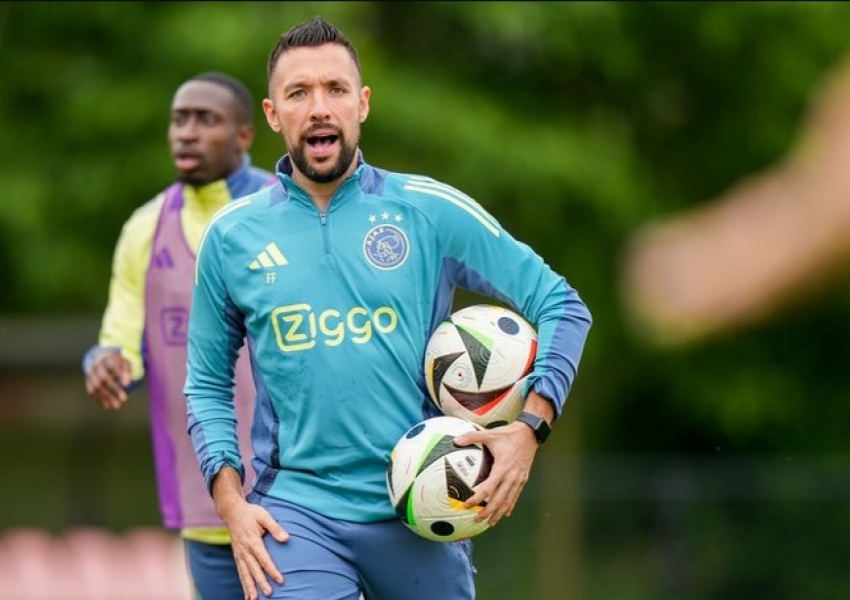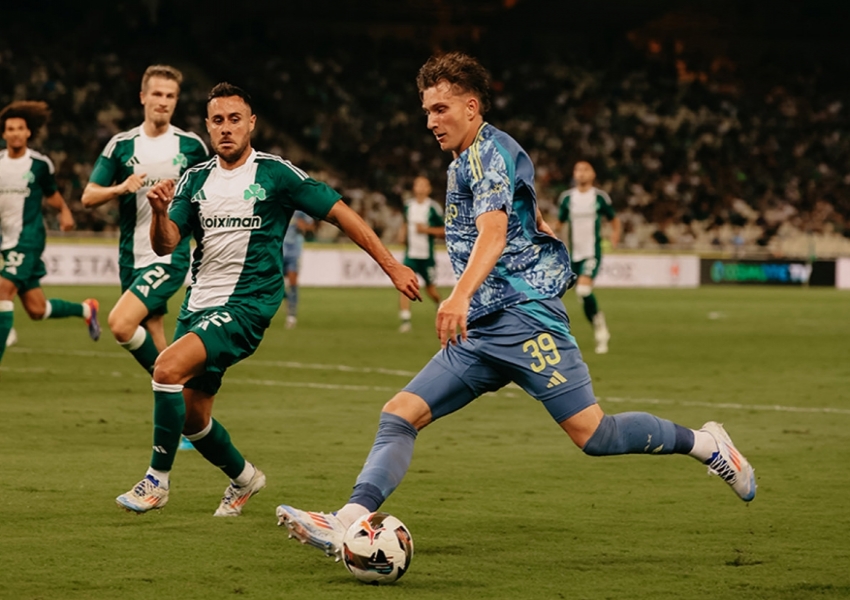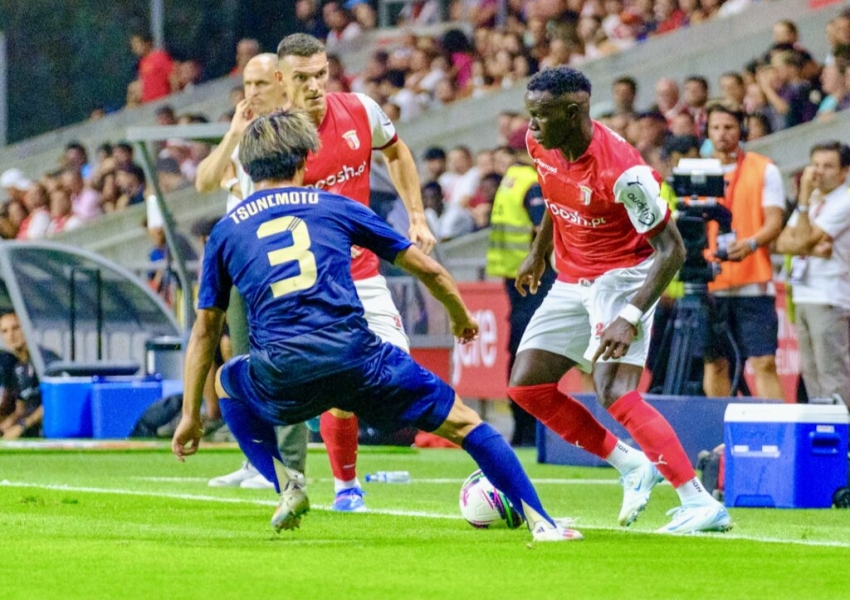UEFA Europa League Third Qualifying Round: Atypical Ajax Progresses Steadily, Braga Adapts with Flexibility
The UEFA Europa League third qualifying round continued on August 16, with clubs vying for a spot in the competition's group stage. This stage of the tournament is crucial for teams looking to establish themselves on the European stage. The matches featured here showcase the strategies, challenges, and performances of two clubs: Ajax and Braga. Both teams faced different but equally demanding situations, requiring adaptability and tactical awareness.

Ajax vs. Panathinaikos: Veteran Goalkeeper Guards Ajax’s Steady Progress
Ajax, a club synonymous with attacking football and a rich history of developing young talent, has taken a somewhat surprising turn this season. The Amsterdam giants appointed an Italian coach, Francesco Farioli, marking a shift towards a more conservative style of play. Farioli, at just 35 years old, is younger than Ajax’s veteran goalkeeper, Remko Pasveer, who is 41. Despite the age difference, Farioli has shown immense trust in Pasveer, starting him in every official match this season. Pasveer has repaid this trust by conceding only one goal in four matches, helping Ajax regain its defensive solidity after a disappointing previous season.

In the first leg of this tie, Ajax secured a 1-0 victory away against Panathinaikos, a result that suggested they had shaken off last season's struggles. The match saw Ajax dominate possession, using their intricate passing game to control proceedings. Despite being away from home, Ajax played with confidence, moving the ball effectively across the pitch. Whether attacking through the center or exploiting the wings, Panathinaikos’ defense was often caught out, but their quick recovery work prevented Ajax from creating many clear-cut chances.

The breakthrough came in the 28th minute, when Panathinaikos began to tire. Ajax took advantage of a lapse in defensive concentration, working the ball swiftly on the right side of the box. After a series of quick passes, Steven Berghuis found himself in space and fired a left-footed shot into the near corner, giving Ajax a deserved lead. The goal was not the result of a particularly brilliant piece of play, but rather Panathinaikos' fatigue and defensive disorganization.
After conceding, Panathinaikos tried to press higher up the pitch, hoping to force Ajax into mistakes. However, Ajax’s players, confident in their technical abilities, managed to bypass the press with relative ease. This only served to further tire the Greek side, whose pressing became increasingly ineffective as the half wore on. Just before halftime, Ajax nearly doubled their lead when they attacked down the left flank. A clever feint led to a cross into the box, followed by a simple two-pass combination that created a shooting opportunity, but the effort was straight at the goalkeeper.
In the second half, Ajax adopted a more cautious approach, withdrawing into a deeper defensive setup. This allowed Panathinaikos to enjoy more possession, and they did manage to create two very threatening chances. The first was a quick break that resulted in a shot that narrowly missed the target. The second came from a powerful strike that hit the crossbar, leaving Ajax fans momentarily breathless. However, despite these scares, Panathinaikos could not find the back of the net.
Farioli’s appointment and his faith in Pasveer indicate a strategic shift for Ajax, moving away from the traditional Dutch attacking philosophy towards a more balanced, pragmatic approach. As Ajax prepares for the second leg at home, their fans can expect a disciplined and controlled performance. With a 1-0 lead, they are likely to employ a similar strategy, focusing on defensive solidity while looking to strike on the counter-attack. Panathinaikos, on the other hand, may struggle to break down Ajax’s organized defense, especially considering their difficulties in the first leg.
Servette vs. Braga: Adaptability and Tactical Awareness Define the Battle
The first leg between Swiss side Servette and Portuguese club Braga ended in a goalless draw, a result that might not immediately suggest excitement but was a tactical battle in every sense. Both teams showed a strong defensive commitment, but it was Braga’s ability to adapt their strategy during the game that stood out.
Braga, traditionally a team that enjoys controlling possession, found themselves stifled by Servette's disciplined defensive structure. Despite holding nearly 60% of the ball, Braga struggled to create clear scoring opportunities in the first half. Their passing, while precise, failed to penetrate the Swiss side’s well-organized defense. Servette, meanwhile, was content to sit back and absorb pressure, waiting for opportunities to launch quick counter-attacks.
The best chance of the half came in the 27th minute when Servette capitalized on a long throw-in deep into Braga’s penalty area. After a flick-on header, the ball fell to Servette’s striker, Jean-Pierre Nsame, who unleashed a powerful shot aimed at the far corner. However, the ball narrowly missed the target, much to the relief of Braga’s defense.
Recognizing that their possession-based approach was yielding few results, Braga made a significant tactical shift in the second half. They began to press higher up the pitch, mirroring Servette’s earlier strategy of disrupting their opponent’s build-up play. This change in approach had an immediate impact. Braga’s pressing forced Servette into mistakes, creating turnovers in dangerous areas. Suddenly, Braga looked more threatening, with several quick transitions leading to shots on goal. This adaptability demonstrated Braga’s tactical flexibility, a trait that could be crucial as they navigate the challenges of European competition.
Despite the tactical shifts, both teams created only a handful of clear chances. The game’s tension was reflected in the lengthy stoppage time, which extended over 10 minutes due to various on-field altercations and disputes. Ultimately, the 0-0 draw was a fair reflection of a match in which neither side could claim to have dominated.
As the teams head into the second leg, it is clear that both managers will need to reconsider their strategies. For Braga, the key may lie in further refining their pressing game and capitalizing on any defensive lapses by Servette. For the Swiss side, playing at home could provide the psychological edge needed to secure a narrow victory, especially if the match heads into extra time. Servette’s disciplined defense and ability to threaten on the counter-attack mean that they cannot be underestimated.
A Look Ahead: Strategy and Adaptability in Focus
As these two ties demonstrate, success in the Europa League often hinges on more than just talent. Tactical awareness, adaptability, and the ability to execute a game plan under pressure are equally important. Ajax’s move towards a more defensively solid approach under Farioli, and Braga’s willingness to adapt their tactics mid-game, show that both clubs are prepared to do what it takes to progress in this competition.
Ajax, with their experienced squad and newfound defensive discipline, look well-positioned to advance to the next round. Panathinaikos will need something special to overturn the deficit in Amsterdam. Meanwhile, the Braga-Servette tie remains delicately poised, with both teams knowing that a single mistake or moment of brilliance could decide the outcome.
These matches are a reminder of the unpredictable nature of European football, where even the smallest tactical adjustment can make all the difference. As the second legs approach, fans can expect more tense, closely contested encounters, where strategy and execution will be key to securing a place in the Europa League group stage.
Copyright Statement:
Author: mrfootballer
Source: Mrfootballer
The copyright of this article belongs to the author. Reproduction is not allowed without permission.
Recommended Blog
- UEFA Champions League Qualifying Round 3: Lille’s Pragmatic Approach, Twente’s Home Advantage in Question
- Serie A Giants' Starting XI Market Value: Inter Tops the List with Two Variables, Milan Edges Out Juventus and Napoli
- Inter's Preseason Gains Evident at Stamford Bridge: Avoiding the Fate of Napoli and AC Milan
- Eredivisie Opening Round: How Will European Fixtures Affect Ajax? Zwolle’s Sophomore Season Won’t Be Easy
- Inter Milan Seven Absent for Chelsea Friendly, but There's One Exception: Lautaro Is Following in Zanetti's Footsteps, Not Ronaldo's
- Inter Milan's Final Window Moves: Addressing Two Major Concerns, Premier League Target Linked Due to One Key Promise
- Europa League Playoff Second Legs: Ajax Cruise, Sparta Prague Still Hopeful
- UEFA Champions League Playoffs Second Leg: PSV's Patience Tested, Antwerp's Nerves Exposed
- Comprehensive Analysis of Inter Milan's New Signing: From Depression to Aerial Dominance, with a Little Help from AC Milan
- UEFA Champions League Playoff Second Legs: Galatasaray in Control, Braga Rue First-Leg Regrets
Hot Blog
- English Media: Manchester United Will Win Premier League Title in 2028! History Will Repeat Itself, Two Teams Serve as Inspirations
- 0-2 Double Defeat! China National Team Stuck at 6 Points: No More Direct World Cup Hopes, Two Crucial Matches Ahead
- 4 AM Showdown: Barcelona's Revenge Match! Win = 3-Point Lead Over Real Madrid, Key Players Rested
- China National Football Team Drops 13.6 Points, Slips to 94th in FIFA Rankings: Syria Overtakes, New 9-Year Low
- 0-0 Draw! Japan 12 Shots, 2 Missed One-on-Ones: 8 Matches, 20 Points, Group Winner, Saudi Arabia Stuck at 10 Points in 3rd
- 4-1, Double Win Over Brazil! Argentina Celebrates: World Cup Qualification Secured, 4th Team Globally to Qualify
- Real Madrid Got Lazy: 7 Kilometers Less Running in UCL! Two Superstar Spectators While Barça Outruns Them All
- United Go for Glory: Unbeaten in 10, Fueled by Kobbie Mainoo’s Return, Red Devils Eye Europa League Crown
- Champions League Classic: Barça’s Midfield Maestro Worshipped by Thousands After 11.5KM Marathon
- Champions League Semifinal Odds: Barça at 99%, Real Madrid’s Hopes Dwindle to 6%, PSG Cruise Ahead